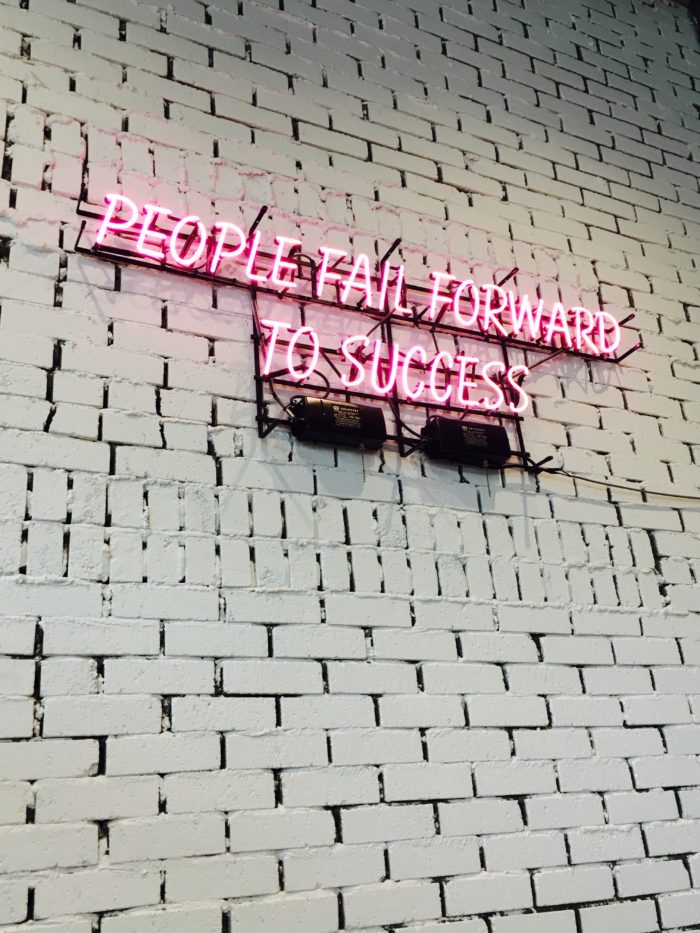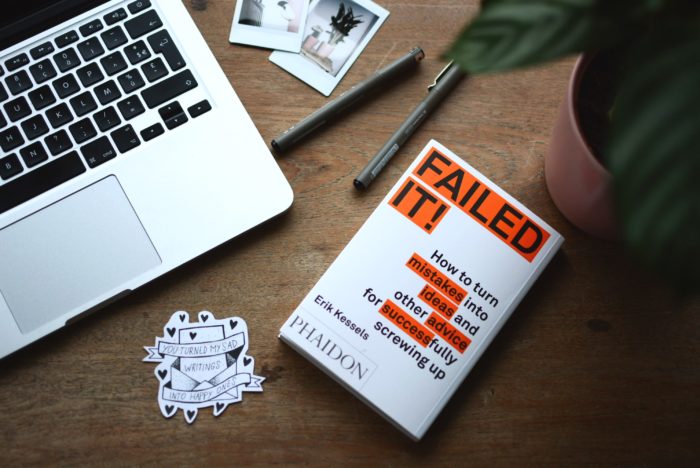 How often do you experience failure? I will publicly admit that I fail *all the time.* As a writer, artist, and entrepreneur-editor of this publication, I’m constantly trying things that just don’t work out the way I wish. From pitches to fellowships and grants, I get rejected on a regular basis–and truth be told, it doesn’t get any less painful. Although failure gives me plenty of character, I’d be fully okay with less moral fortitude and success 100% of the time!
How often do you experience failure? I will publicly admit that I fail *all the time.* As a writer, artist, and entrepreneur-editor of this publication, I’m constantly trying things that just don’t work out the way I wish. From pitches to fellowships and grants, I get rejected on a regular basis–and truth be told, it doesn’t get any less painful. Although failure gives me plenty of character, I’d be fully okay with less moral fortitude and success 100% of the time!
But a new study conducted by researchers at the University of Arizona, Brown, UCLA, and Princeton has discovered that you are learning and improving most optimally when you get things right just 85% of the time. That means 15% of the time, you have to “fail” or make the wrong choices in order for you to keep learning. That’s a surprisingly large percentage of failure, isn’t it?
To find this out, researchers studied how quickly AI learned tasks such as classifying different patterns or recognizing handwritten numbers as even or odd. The computers learned most quickly when they were faced with problems at a sufficiently difficult level for them to miss 15% of the time. In education, this is called the zone of proximal difficulty. Surprisingly, this so-called 85% rule has been shown in animal learning studies as well.
If 85% rule applies to machine learning and animal learning, what does that mean for human learning? Failing part of the time is likely to optimize perceptual learning, in which we gradually learn through experience and examples. So failing abundantly may not help your procedural learning, logic, or expository writing, per se. But anything that requires perceptual analysis would be improved through some–15%, to be exact!–failure.
As a general principle though, 85% rule proves that being challenged enough is crucial to learning and growth. “If you are taking classes that are too easy and acing them all the time, then you probably aren’t getting as much out of a class as someone who’s struggling but managing to keep up,” Robert Wilson, the lead author of the study, said. “The hope is we can expand this work and start to talk about more complicated forms of learning.”
This also complements other studies that have examined what makes experts achieve true greatness while most people stop at average or at most, “very good.” Research shows that the best figure skaters are those who dedicate more time to practicing jumps they haven’t yet nailed, while less accomplished skaters tend to repeat the moves that they’ve already mastered. Spelling bee champions spend more time learning new words than reviewing ones they’ve already memorized. Of course, practicing new jumps or unfamiliar words will inevitably result in more failures, but it’s exactly those attempts that enables progress and growth.
So next time you’re feeling frustrated by failure, know that it’s perfectly common among the most successful people–or even that most successful people are more likely to experience failure than less successful people. A healthy amount of failure is only a normal part of an overall successful process.
Does this help you re-frame your feelings on failure?
Also see: Feeling Lost? This Counterintuitive Mindset Shift Can Boost Your Quality Of Life
Yes, Optimism Actually Helps You Live Longer, According To Study
__
Photo: Ian Kim via Unsplash; Estee Janssens via Unsplash





